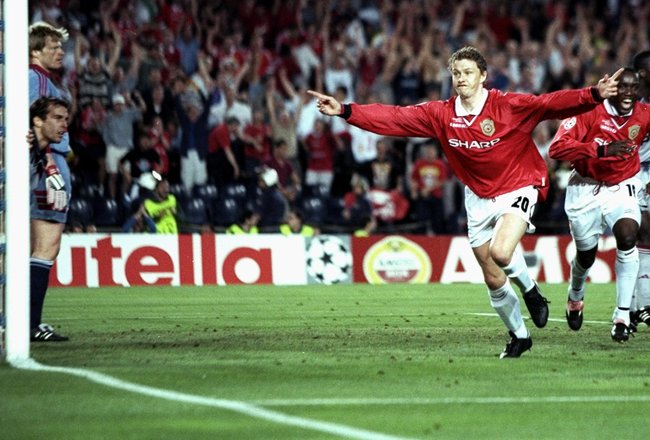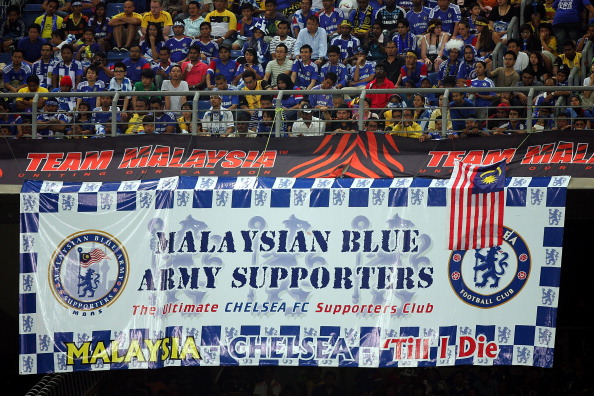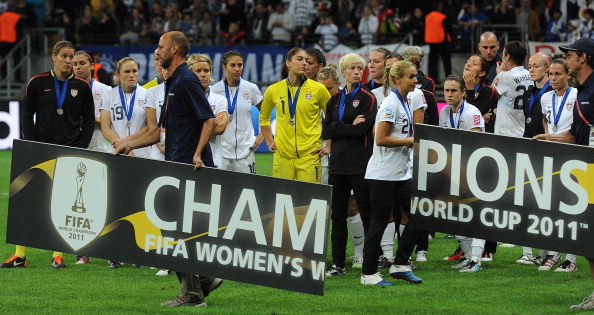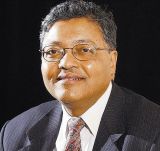The theme of this year’s International Football Arena (IFA) conference, Football: from craze to madness, may suggest we face a sporting Armageddon. But Marcel Schmid, the man whose brainchild the conference is, refuses to take a pessimistic view of the state of the game.
“The football world is upside down, but the world is upside down, isn’t it?,” he says. “It is not only football in a state of chaos, the world is in a state of chaos.
We are mirroring what is happening in the rest of our society. A lot of textile companies, car makers, banks are struggling. There aren’t many areas where there is not a huge fight going on.”
While the conference may be meeting as FIFA copes with football’s worst ever corruption crisis, Schmid is sure that, “bad as it is an issue, it’s not something that is to be dealt within football alone. I’m sure that oil companies, the car industry and the pharmaceutical industry, are facing similar problems. Football is always under the limelight. Don’t get me wrong. I am not saying that one should not fight corruption, or one should not find different rules to deal with it. I am just saying that football is not the only business where you have to deal with corruption. Football has become too important for the people. I don’t think it will ever go away. Football will always be there. It can be that we will find new areas that will attract us.”
This year’s conference will highlight one development that Schmid feels is already taking place and could reshape international football. His first conference back in 1999 came just as the Bosman ruling began to impact on football. That year, Manchester United, freed from UEFA rules on how many non-English players it could play, won its first Champions League title under Sir Alex Ferguson and completed a unique treble, having won the Premiership and the FA Cup.

That was the year UEFA remodelled its Champions League to stop the big clubs being lured away to form their own breakaway European mid-week league. Since then, the Champions League, and the various European leagues led by the Premier League, have been so dominant that Europe provides the world stage for the game, attracting all the best players not only from Africa and Asia, but also South America.
But, as Schmid prepares for his 13th conference, he is convinced he has seen another turn of the football wheel of change. “We are going through a transition here. One example seems to be Brazil. I think the Brazilians don’t need to sell the young talents to Europe. Take Neymar [the Santos player]. Even some big names from Europe have gone back to their own clubs in Brazil at a relatively young age again, and not just shortly before retirement, as they were doing in the past. Now if a guy is not happy, the clubs in Brazil can find the money to keep him. This is because of the growing emergence of Brazil as a country and it affects the football industry there as well.”
And while Europe may be the centre of world football, he does not accept that this means European dominance in financial terms. “In Italy the stadiums are breaking, the hooligan problem isn’t solved, the number of spectators is going down. Italy is not a healthy market anymore, is it? In Spain you have two clubs who are so much above the others. Barcelona has made the biggest contract in history for a sponsor but, except for Real Madrid, the rest of the league can hardly pay the players’ salaries.”
He also points to the nationality of those who provide money for the clubs in Europe. “European clubs, French, English get funded by money which is coming from outside. Look at the Premier League. How many of the clubs are in English hands? Only half, and it is not the interesting half.”
With that he laughs and adds, “The bigger clubs don’t belong to the English any more, do they? In France, the biggest potential club is being funded by the Qataris. Paris Saint-Germain now has the best prospect to become a European force from France.”
These changes makes Schmid wonder, “How this is going to be corresponding with Michel Platini’s [UEFA President] ideas about financial fair play is going to be interesting to see and to watch. This year’s conference, which will have representatives from the top five European countries [England, Italy, Spain, Germany and France] is happening under the awareness that UEFA wants to implement financial fair play. So we will have a guy from UEFA, he will be brought into the discussion because you can’t discuss these matters and not address the change being implemented in the very near future.”
It was a concern about the changes coming to European football that promoted Ian Ayre, the Liverpool managing director, to float his controversial idea that overseas television money should not, as it is now, be shared equally by all the Premiership clubs. Ayre, eager to pursue the agenda of his American owners to generate more money, argued that the bigger English clubs, like Manchester United and Liverpool, who have greater appeal overseas, should get more of the overseas revenue. While Ayre’s proposals had not reached Schmid, when I made him aware of them he reflected on the wider issue of how Europe’s top clubs interact with Asia.
“The fact is, the ten or the dozen big brands in European football regard Asia as a lateral market. I mean, why is Manchester United going to have a share issue in Singapore and not in London or in Frankfurt? Simply for the reason that they have more fans in Asia than they have in Europe. What I have seen is that some clubs just run to Asian countries, they make the pre-season tour, they try to collect money, ticketing, merchandising and they go home. They do not give anything back.”
The one clubs he feels that does not behave that way is Chelsea. “Chelsea are really trying to build up a partnership on various levels: educate teams, bring coaching staff, even have the teams flying into England as they did with the Chinese to give them access to their training grounds and their knowhow. They also engage on so many various levels within Asia so that they really build up partnerships.”
You could say Schmid would say that. Chelsea is a partner of IFA and, as Schmid accepts, it is “thanks to this partnership we had the backing to bring our vehicle to Asia as a discussion platform for the industry.” This has seen IFA conferences in Beijing, Kuala Lumpur and India.

However, having declared his interest, Schmid makes the valid point that European clubs should not be seen as just taking benefits out of Asia. This has made many Asians, witnessing the decline of their domestic football in the face of completion from televised European football, feel this is a new form of colonialism. Schmid warns: “Clubs should not be just taking it out. As Chelsea do, they must give something back in. This is most important if you want to become a fair partner to the Asian associations.”
It was his own frustration with getting nothing out of football conferences that made the 57-year-old Schmid set up IFA. A junior with the Grasshoppers, he played for nine years in what he proudly describes as “the best junior team in Switzerland”. Marcel initially branched into football agency [The football agency still exists, but it is handled by a different company with its own managing director, with Schmid not involved in the daily business]. For years he was a regular at conferences such as Soccerex and Leaders in Football
“I grew frustrated at being a delegate at other conferences. I was travelling far: Singapore, Manchester, Guam, Frankfurt and I always came home and said, ‘This cannot have been it.’ I could have sent my assistants. I didn’t meet and learn from high level people in the football industry.”
His response was to create his own conference and his model was Davos, the well established Swiss platform for politicians and economic leaders worldwide. “I thought if they can do it for politics and economics, why not try and create a similar thing for decision makers in the international football industry.”
Schmid readily accepts that his IFA is nowhere near Davos. “Davos has been in place now for more than forty years. They have grown tremendously over the past two decades and they are quite unique. There is, probably, no other conference in the world like that.”
But like Davos, and unlike many other football conferences, some of which he feels are a joke, Schmid is proud that his IFA conferences are not trade shows. “In other conferences, people are just saying: ‘Right, come and sell your goods.’ If you have any product to sell you can rent booths and advertise your product. They are not conferences. Ours, you cannot be invited to come unless you are a sponsor. There is no click on the website where you can say, ‘Okay, I’d like to come. I pay, I don’t know, £1,000, and I will be there.’ We are quite unique. It is really by invitation only.”
“We say, ‘Come and exchange ideas on how football can change.’ Have some vision, be creative, let us take you out of the daily agenda, meet some representatives from other countries, other associations, other clubs that you are not so familiar with. That is where we are very similar to Davos. Davos is not the United Nations. They don’t come up with resolutions, but they can address the issues. They can create new ideas. We give them a platform, like a TV show.”
This, of course, comes easily to Schmid as he has also been a host on television and radio talk shows. “So putting on a conference with hot issues and selecting the right people to come and discuss matters was for me very similar to producing a talk show for radio or television. We like to show pictures.”
And his conference will open with pictures from the Women’s World Cup in Germany, an event that captivated him. “I am opening with female football because, looking at what I saw at the Female World Cup this summer in Germany, and also speaking to many of my football friends, I must say that this was astonishing. It was astonishing by the level they played and by the pureness of the game. They would be fouled, lying on the floor and they got up. They didn’t question the referee. It was such a pure and fascinating game at the top level.”

He wants to show the pictures because he feels the women have lessons for all of football,
“Maybe not in the next two years, but maybe the next ten years we will see that females will capture the interest of the entire football community. And females will make the males fairer because the male football is certainly not very fair at times.”
It is a bold forecast, but then not many could have foreseen the changes in football since Schmid held the first IFA.
IFA Zurich 2011 takes place on November 7th and 8th at the Dolder Grand Hotel, Zurich.
To find out how to attend please click here.
Mihir Bose is one of the world’s most astute observers on politics in sport and, particularly, football. He formerly wrote for The Sunday Times and The Daily Telegraph, and was the BBC’s head sports editor. Follow Mihir on twitter.

